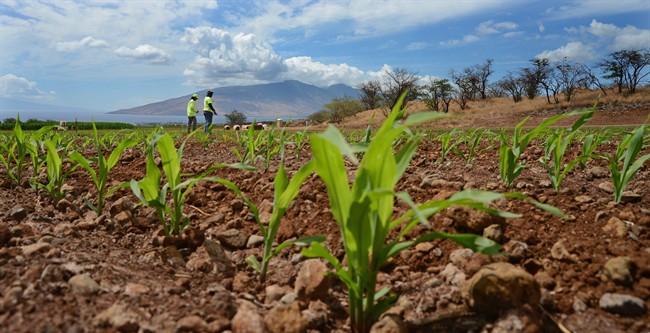The City of Surrey’s website FarmableNOW wants to help residents increase their access to fresh, local produce.

Councillor Mike Starchuk, who is also chair of the Agriculture Food Security Advisory Committee, says they wanted to develop something that would pair currently unused land in Agricultural Land Reserve (ALR) and find people willing to rent it and farm it.
That’s when the idea for the website was born and soft-launched last September.
“The biggest challenge that we’ll have now is getting the word out there that if you happen to have some agricultural land that you’re not utilizing, you need to go through the process of letting us know you have some land that you would be interested in leasing out,” says Starchuk.
It takes about 10 to 15 minutes to fill out the details on the website, whether you own land or are looking for land to farm.
Starchuk says the response has been positive so far. Other communities have also expressed the desire to get involved.
The price to lease the land is not set but Starchuk says the typical dollar value that was established last year by some of the farmers was $300 an acre for the year.
There is also hope this website will encourage young farmers to get involved, especially those who can’t afford to buy their own farm right away but could afford to lease some land to start earning money.
“The more that we can get people to buy into that fact that we’re looking for local, sustainable food, that’s the key,” he says.
And the city is hoping the increased farming will lead to more local produce for residents.
“We buy it when it’s at its freshest, we preserve it when it’s at its freshest and when it’s at its freshest, it’s also at its cheapest,” says Starchuk. “And if you’re buying it from a local farmer, you have a good idea of where the water came from, what the soil was like, and that you’re actually having the ability to pay somebody a livable wage and in return, get something that tastes better and is nutritious.”
He is also hoping some of the refugees coming to Canada might want to take advantage of this opportunity. “Maybe we can, if we have the property that’s there, that this becomes the connecting tool for them to the land.”
“It’s something we say jokingly, from time to time, it’s the eHarmony of agriculture.”




Comments